
The view of Tweeling's township from the balcony at Refeng-Thabo.

South Africa has a very unique dynamic in the way that towns are set up. During apartheid, the towns themselves were reserved for white South Africans, black South Africans were restricted to what are called “townships” or “locations.” Mixed-race towns, like Sophiatown in Johannesburg, were cleared of black residents, who were relocated to the townships or to independent “Bantustans,” and bulldozed.

The idea was to keep black South Africans close enough to town to provide cheap labor, but far enough away that white South Africans could avoid black South Africans in any social situation in town.

As an added insult, the apartheid government enacted several different pass laws, requiring black South Africans to have a pass to be in an urban area or in the town. The only allowable reasons for being in town or in the city were for work or, for women, for the husband’s work. Black South Africans needed a pass to leave their township and to travel out of the established “homeland.”

Even tiny towns like Tweeling have a sizeable township. The town used to be completely white, with black South Africans not allowed to live in town. The town now is about half black and half white, with many black families owning and renting homes in town.
 The township, on the other hand, is completely black and, for the most part, very poor. All of the students at Refeng-Thabo come from the township and these are photos of some of their homes.
The township, on the other hand, is completely black and, for the most part, very poor. All of the students at Refeng-Thabo come from the township and these are photos of some of their homes. 
These students of Kate's happened to be out in the township while we were taking pictures.

Refeng-Thabo's teachers are still on strike, so they have been out of school now for two weeks.
Tweeling’s township is now in the middle of the installation of a huge plumbing project that will provide sewer services to every house in the township. Currently, almost no houses in the township have indoor plumbing and none have sewer hook-ups. Most people get their water from a spigot in the yard, which they use for washing and cooking.
 Almost every home has an outdoor toilet that is either a pit or a bucket toilet. Washing is done, for the most part, with a bucket and a washcloth. Laundry is done in a basin and hung in the yard.
Almost every home has an outdoor toilet that is either a pit or a bucket toilet. Washing is done, for the most part, with a bucket and a washcloth. Laundry is done in a basin and hung in the yard.
Kagiso Motale and Simphiwe Mohapi helped me to take these pictures of the houses in the Tweeling township. They explained to people why we were taking pictures, and most people were very glad that people in America would see their homes.

There are several nicer homes, like these, in the township. They are, however, very rare.


Difficult to see, but these are three of Kate's grade 10 and 11 history students.

The Rainbow clinic, where Andy works, is located at the edge of the township and serves mostly township residents. Nurses are included in the public servants' strike, but the clinic has remained open throughout the strike. Pressure from the nurses' union forced Lucy Mokoena, who runs the clinic, to close on Tuesday and Wednesday of this week, but she is determined to keep the clinic open for as long as she is able, as it is the only free medical care in Tweeling and the only medical care that most of Tweeling's residents have access to.
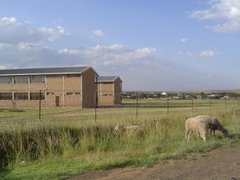




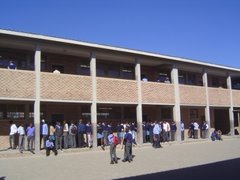
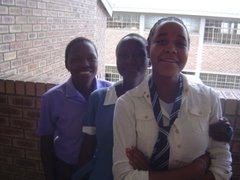

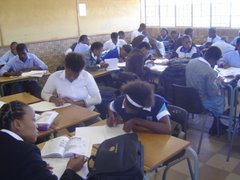
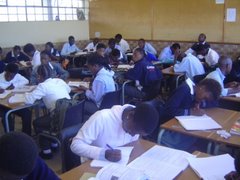

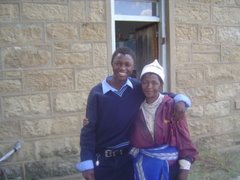
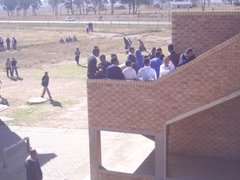
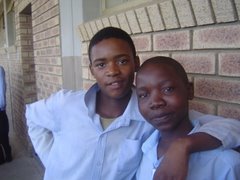
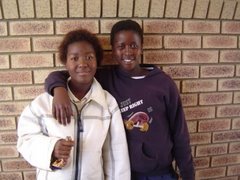




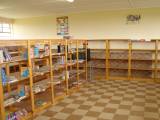
No comments:
Post a Comment